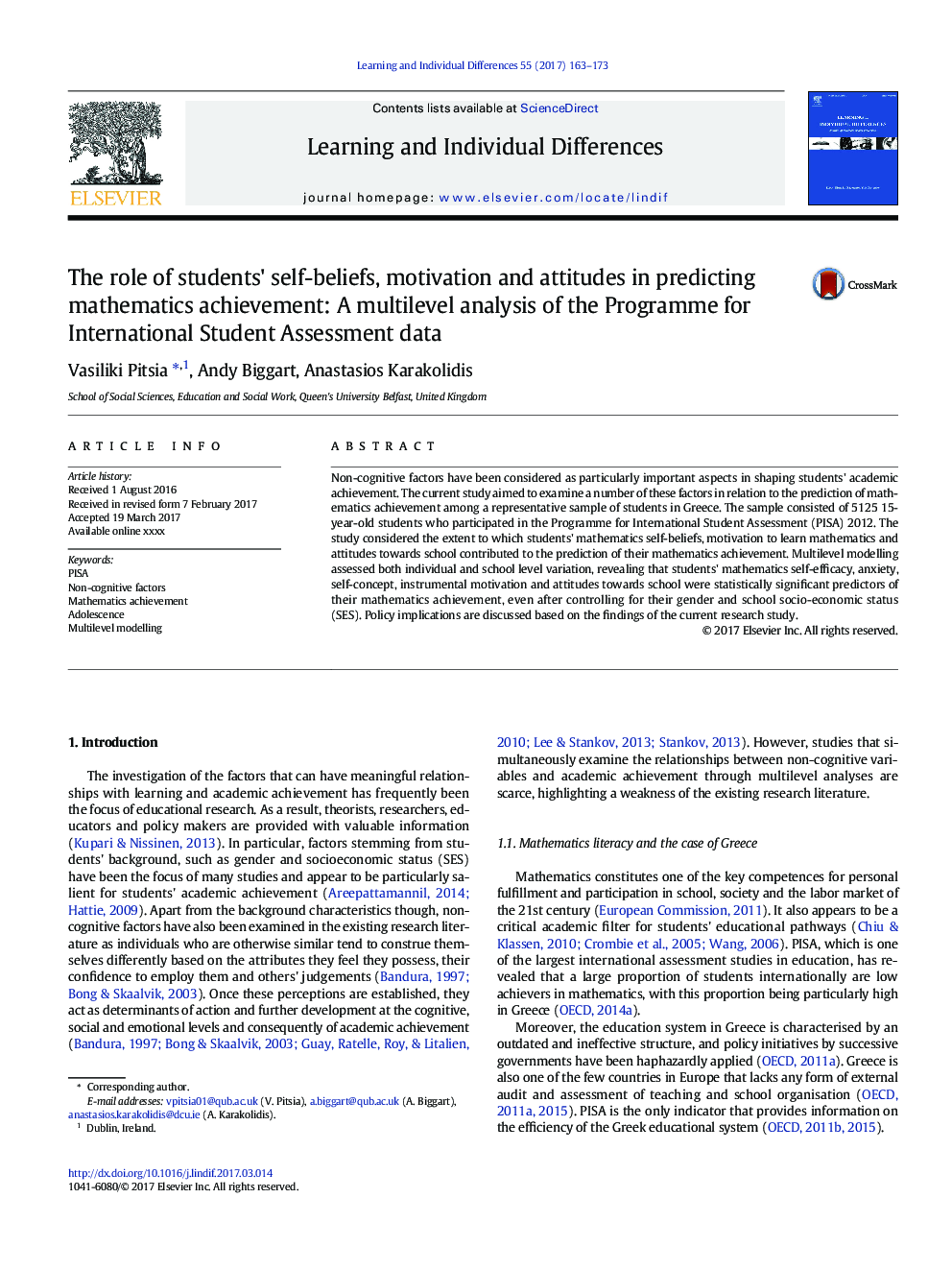| Article ID | Journal | Published Year | Pages | File Type |
|---|---|---|---|---|
| 4939988 | Learning and Individual Differences | 2017 | 11 Pages |
Abstract
Non-cognitive factors have been considered as particularly important aspects in shaping students' academic achievement. The current study aimed to examine a number of these factors in relation to the prediction of mathematics achievement among a representative sample of students in Greece. The sample consisted of 5125 15-year-old students who participated in the Programme for International Student Assessment (PISA) 2012. The study considered the extent to which students' mathematics self-beliefs, motivation to learn mathematics and attitudes towards school contributed to the prediction of their mathematics achievement. Multilevel modelling assessed both individual and school level variation, revealing that students' mathematics self-efficacy, anxiety, self-concept, instrumental motivation and attitudes towards school were statistically significant predictors of their mathematics achievement, even after controlling for their gender and school socio-economic status (SES). Policy implications are discussed based on the findings of the current research study.
Related Topics
Social Sciences and Humanities
Psychology
Developmental and Educational Psychology
Authors
Vasiliki Pitsia, Andy Biggart, Anastasios Karakolidis,
